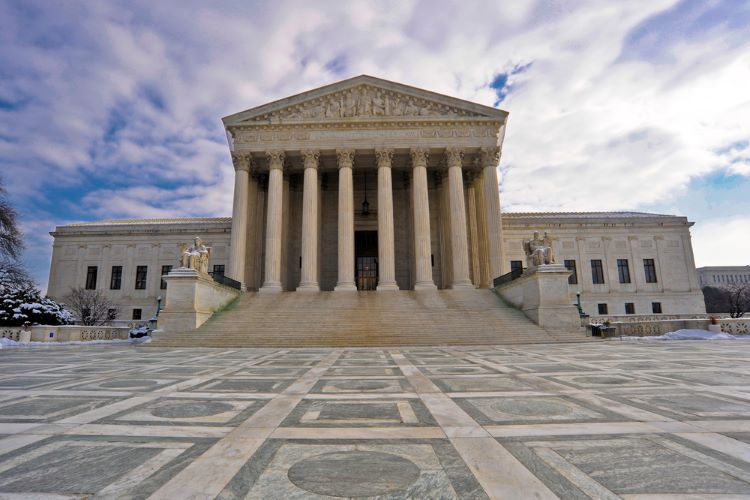2020 Supreme Court decision offers 'dangerous' path for stealing election, legal scholars say

A 2020 U.S. Supreme Court decision on faithless electors appears to allow state legislatures to pursue a “dangerous strategy” for overturning election results. (Image from Shutterstock)
A 2020 U.S. Supreme Court decision on faithless electors appears to allow state legislatures to pursue a “dangerous strategy” for overturning election results, according to an op-ed in the New York Times by two legal scholars.
The decision, Chiafalo v. Washington, held that states can enforce an elector’s pledge to support the winner of the state popular vote in presidential elections. But what if a state passes a law directing electors to vote for a candidate chosen by the legislature?
The authors of the New York Times op-ed read Chiafalo as giving state lawmakers that power, although the high court didn’t intend that result.
“Imagine the election results in a state are close,” wrote Lawrence Lessig, a professor at Harvard Law School, and Matthew A. Seligman, a fellow at the Constitutional Law Center at Stanford Law School, in the op-ed.
“Charges of fraud cloud a recount. Leaders in the state legislature challenge the presumptive result. In response to those challenges, the legislature votes to direct its electors to cast their ballots for the candidate who presumptively lost but whom the legislature prefers. Any elector voting contrary to the legislature’s rule would be removed and replaced with an elector who complied.
“This is a critical innovation in the science of stealing a presidential election,” the op-ed said.
Lessig and Seligman suggest that Congress and legislatures should act now to prevent this scenario.
“Congress could amend the federal law governing electoral votes by declaring that any post-election change of the results by a state legislature would not count as votes ‘regularly given,’” they wrote. “States could cement the requirement that electors are to follow the people’s will. Neither path is assured, but we are certain of this: It is a rocky road ahead.”
See also:



